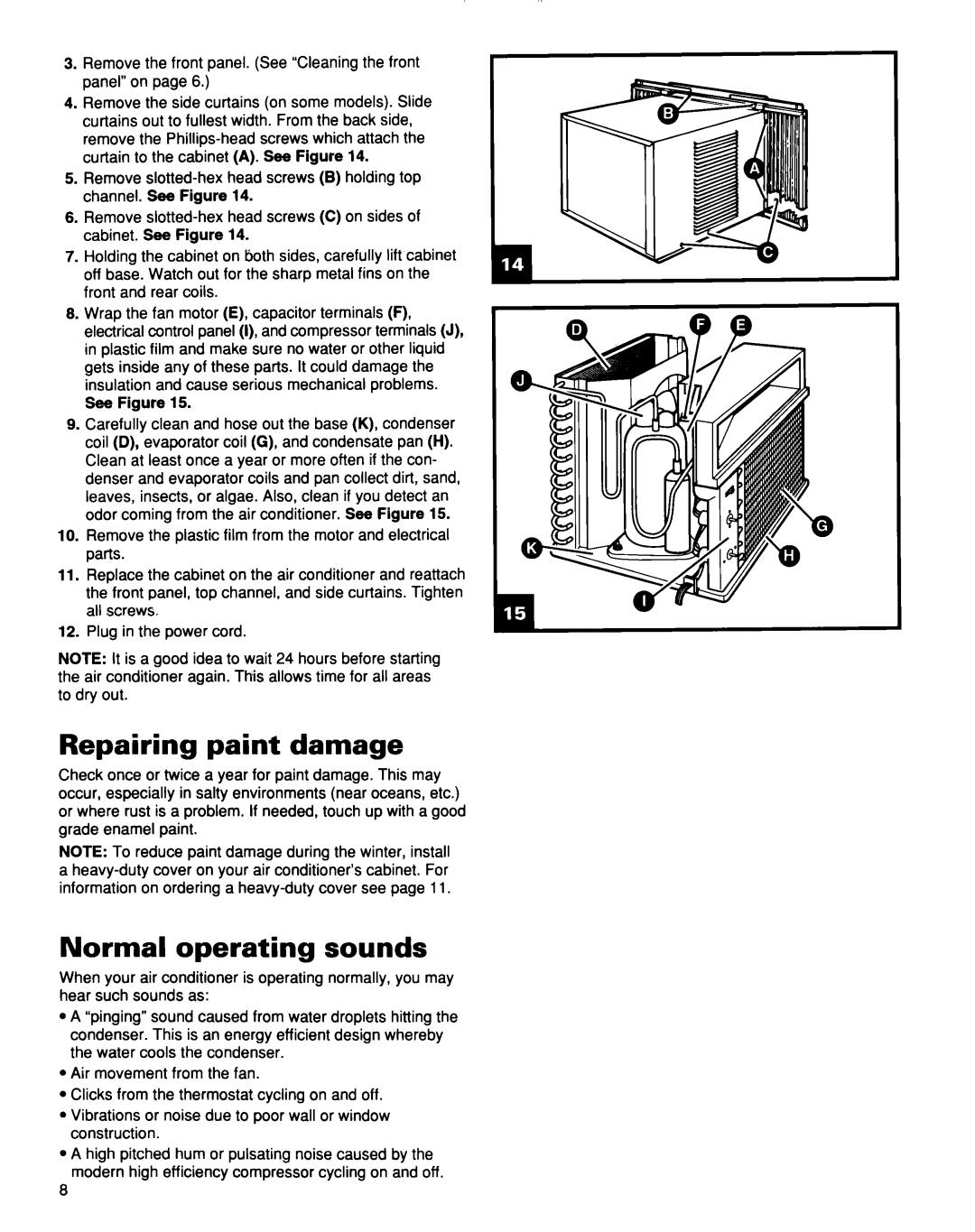
3.Remove the front panel. (See “Cleaningthe front panel” on page 6.)
4.Remove the side curtains (on some models). Slide curtains out to fullest width. From the back side, remove the
5.Remove
6.Remove
7.Holding the cabinet on both sides, carefully lift cabinet off base. Watch out for the sharp metal fins on the front and rear coils.
8.Wrap the fan motor (E), capacitor terminals (F), electrical control panel (I), and compressor terminals (J), in plastic film and make sure no water or other liquid gets inside any of these parts. It could damage the insulation and cause serious mechanical problems.
See Figure 15.
9.Carefully clean and hose out the base (K), condenser coil (D), evaporator coil (G), and condensate pan (H). Clean at least once a year or more often if the con- denser and evaporator coils and pan collect dirt, sand, leaves, insects, or algae. Also, clean if you detect an odor coming from the air conditioner. SW Figure 15.
10.Remove the plastic film from the motor and electrical parts.
11.Replace the cabinet on the air conditioner and reattach the front panel, top channel, and side curtains. Tighten all screws.
12.Plug in the power cord.
NOTE: It is a good idea to wait 24 hours before starting the air conditioner again. This allows time for all areas to dry out.
Q
Repairing paint damage
Check once or twice a year for paint damage. This may occur, especially in salty environments (near oceans, etc.) or where rust is a problem. If needed, touch up with a good grade enamel paint.
NOTE: To reduce paint damage during the winter, install a
Normal operating sounds
When your air conditioner is operating normally, you may hear such sounds as:
lA “pinging”sound caused from water droplets hitting the condenser. This is an energy efficient design whereby the water cools the condenser.
lAir movement from the fan.
lClicks from the thermostat cycling on and off.
lVibrations or noise due to poor wall or window construction.
lA high pitched hum or pulsating noise caused by the modern high efficiency compressor cycling on and off.
8
